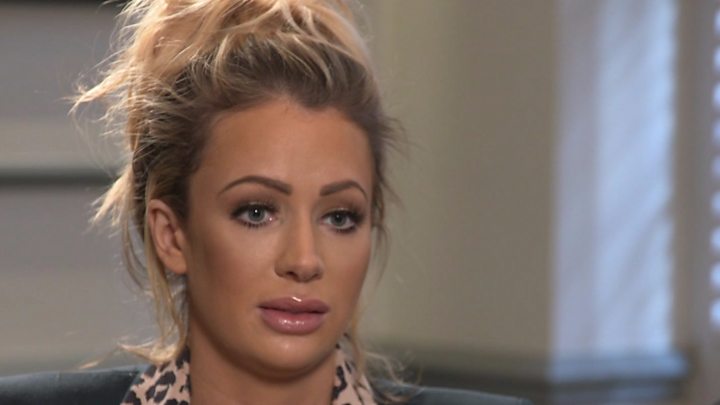Giving pardons to women who were jailed while fighting for the right to vote would be "complicated", the home secretary has said.
Amber Rudd said she would "take a look" but giving legal pardons for offences such as arson wasn't "straightforward".
Scottish Conservative leader Ruth Davidson has given her support to a campaign calling for suffragettes to have their convictions overturned.
Events are being held 100 years on from some women getting the vote in the UK.
Labour leader Jeremy Corbyn said the struggle for equality was continuing, 100 years after the The Representation of the People Act, which was passed on 6 February 1918 and gave women over 30 and "of property" the right to vote.
Theresa May is due to hail the "heroism" of the suffragettes at a speech in Manchester marking the centenary of women's votes.
Other ways in which the anniversary is being marked include:
- A public exhibition of life-sized images of the central figures of the suffrage movement in London's Trafalgar Square
- Portraits of these people will also be in an exhibition at London's City Hall
- A reception for female MPs past and present in Parliament, hosted by Mrs May
- The Parliamentary Archives will display the 1918 Representation of the People Act itself for the first time
- BBC Radio 4's flagship Today Programme used only women contributors and an all-female presenter line-up on its show

Media playback is unsupported on your device
Equality campaign group the Fawcett Society and relatives of the suffragettes are among those who called on the home secretary to overturn the convictions of women who were imprisoned while fighting for the vote.
Emmeline Pankhurst, a founder member of the Woman's Social and Political Union, and leading suffragettes Emily Davison and Flora Drummond were some of the women jailed during the campaign for women's votes.
Ms Davison was found guilty of placing a "dangerous substance likely to injure" in a post office letter box outside Parliament and sentenced to six months in Holloway Prison.
Records compiled by the England, Suffragettes Arrested, 1906-1914 collection indicate there were more than 1,300 suffragette arrests and many women were jailed.
The Scottish Tory leader said she supported calls for posthumous pardons for the convicted women as they were simply "righting the wrong" of of an unjust law.
Writing in the Daily Telegraph, Ms Davidson said: "Voting was a value judgement, not an intrinsic right. That inequality is one reason why I support calls by family members to offer a posthumous pardon to those suffragettes charged with righting that wrong."
Sam Smethers, chief executive of the Fawcett Society, said pardons would be a "fitting tribute".
Ms Rudd, who is also minister for women and equalities, said she would consider the issue.
However, she told Radio 4's Today Programme: "I must be frank, it is complicated because if you're going to give a legal pardon for things like arson and violence it's not as straightforward as people think it might be."
In a speech on Tuesday the prime minister is expected to pay tribute to the "heroic campaigners of the past".
She will link the suffragettes' struggle for democracy with modern-day threats to public debate, which she will say is "coarsening".
Meanwhile, as a tribute to the suffragettes, Scotland's First Minister Nicola Sturgeon announced a £500,000 fund to encourage more women to become involved in politics.
A debate will also take place at the Scottish parliament later celebrating 100 years of female suffrage.
Legislation review
The prime minister will also use her speech in Manchester to warn that online abuse and intimidation is threatening democracy.
She will say online abuse of political candidates and representatives is often targeted at women, gay people and members of ethnic minorities.
"In the face of what is a threat to our democracy, I believe that all of us - individuals, governments, and media old and new - must accept our responsibility to help sustain a genuinely pluralist public debate for the future," she will say.
Mrs May will announce plans for a Law Commission review of legislation to ensure that illegal actions are also illegal online.
Representation of the People Act 1918 - key dates
6 February 1918 - The Representation of the People Act is passed giving women aged over 30 and "of property" the vote
21 November 1918 - The Parliament (Qualification of Women) Act is passed and allows women to stand for Parliament
14 December 1918 - Women vote in a general election for the first time
1928 - The Equal Franchise Act is passed and all women aged over 21 can now vote
30 May 1929 - Women aged between 21 and 29 vote for the first time
Read Again http://www.bbc.com/news/uk-42951817Bagikan Berita Ini














0 Response to "Women's vote: Pardoning suffragettes 'complicated'"
Post a Comment